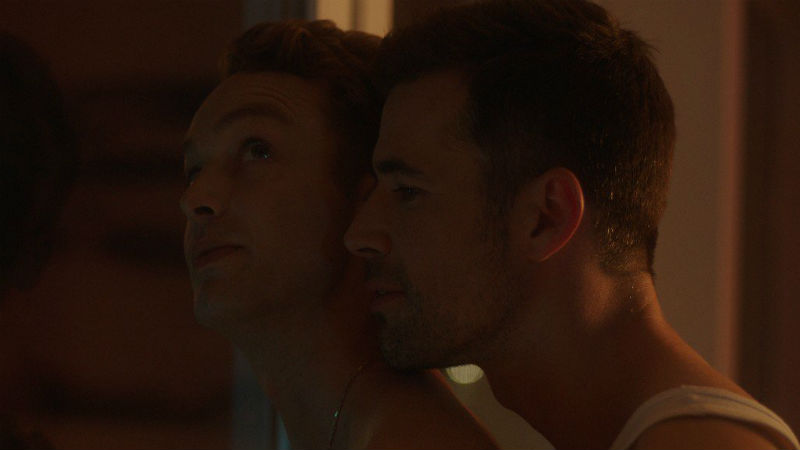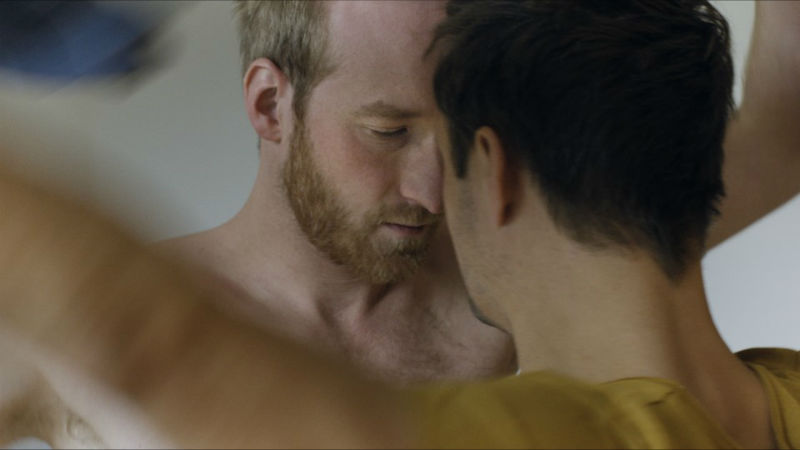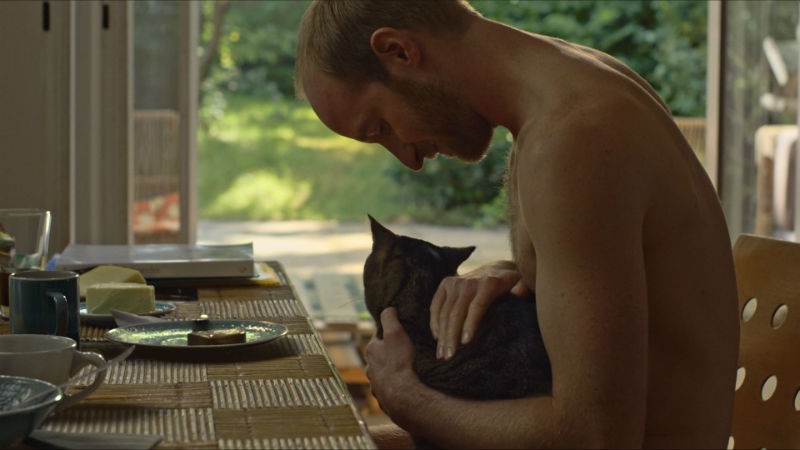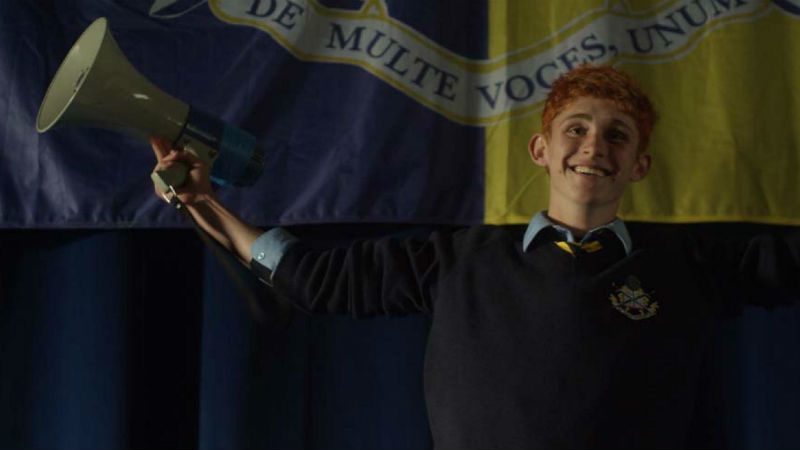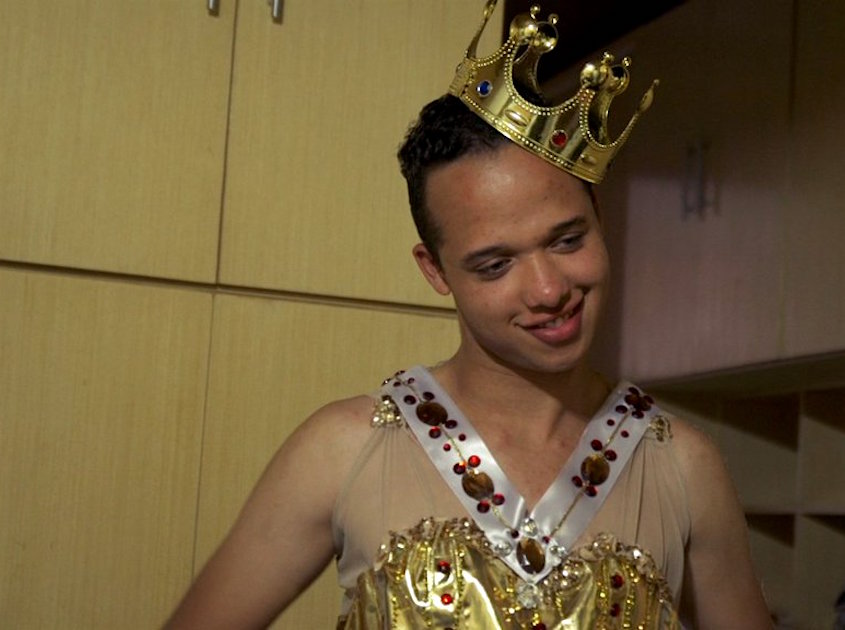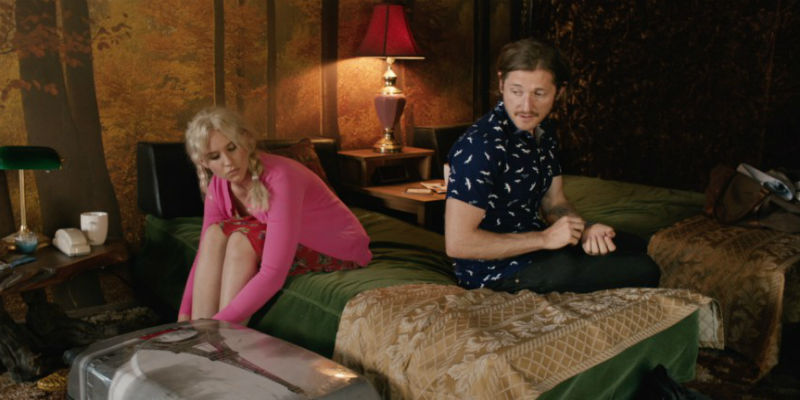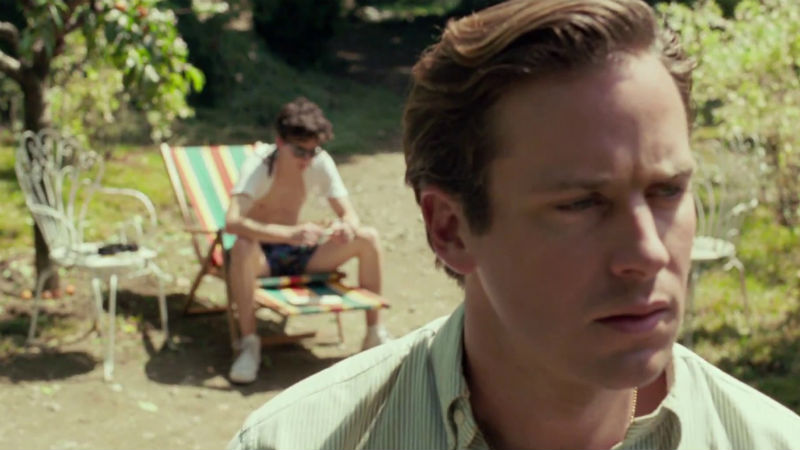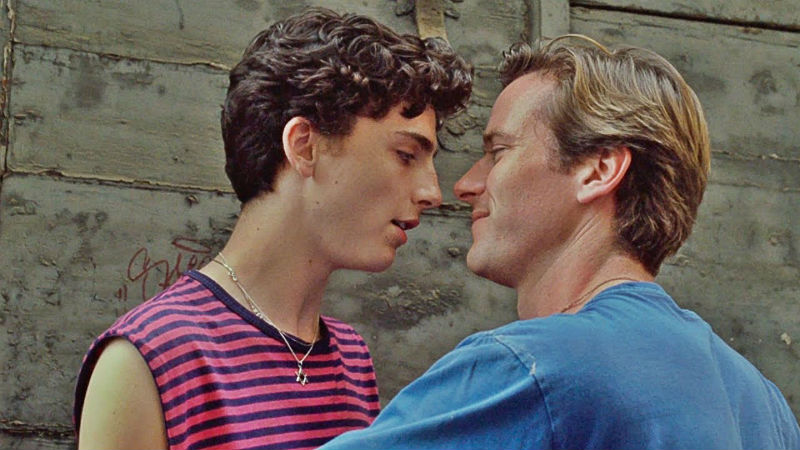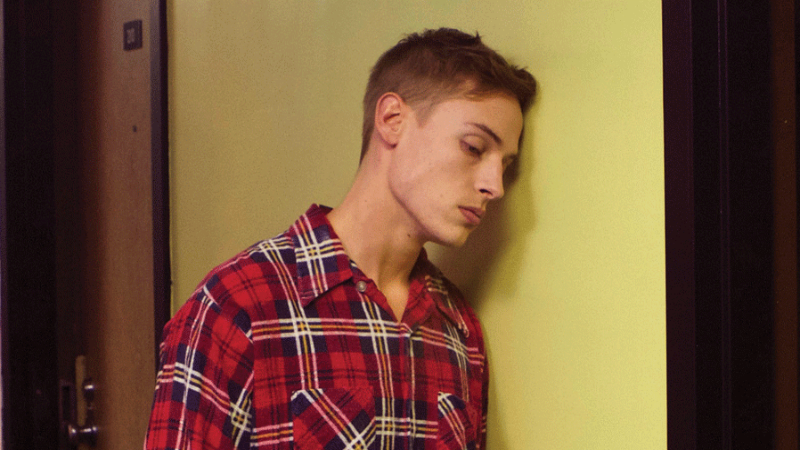First and foremost: cinema is universal. This means that you don’t have to be LGBT in order to appreciate and be impact by an LGBT movie. That’s why we have decided to ask some of our dirty writers and contributors – regardless of their gender and sexuality – to pick they favourite LGBT film of all times. Film sensibility transcends all barriers.
The label LGBT can, of course be problematic. First of all, there is a flirting “Q” for “queer” and sometimes a flirting “I” for intersex”, which some people like to add to the end of the acronym, making it very difficult to memorise and borderline impossible to pronounce. But the biggest issue is in the fact that many LGBT(Q)(I) peopl prefer to shun the label in its entirety because they find it too limiting. They believe that distinguishing LGBT films from non-LGBT films can tokenise gay culture. We can see the rationale behind that.
Yet, at a time when discrimination and even criminalisation of LGBT people still prevails in many parts of the globe, it still makes sense to fly the flag, and to classify films as such. Hopefully this won’t be necessary in 50 years, but sadly right it is very much so. LGBT identity is still a major issue, and you need to break some eggs in order to make an equality omelette. Thankfully these dirty movies are here in order to help us in the fight against bigotry and intolerance.
These films have touched and moved our dirty boys and girls in more than one way. They have helped to change their lives, personality and, in some cases, revisit their identity. Maybe they could do the same to you! So read our heartfelt list of LGBT films and watch their respective trailers with an open mind. You too might become surprised!
Our dirty team has been sorted alphabetically (click on their names in order to accede to their dirty profile). We acknowledge that there is a shortage of ladies! Women – gay and straight, trans and cis, plus everything in between – please get in touch with us and make your dirty thoughts known. We need you on board!
1. Almiro Andrade (actor and writer; dirty boy since February 2016)
His favourite dirty LGBT movie is Women in Revolt (Andy Warhol, 1972):
“A deliciously filthy 1972 satire still extremely current at present days. Jackie Curtis is superb but Candy Darling stole the scene with her arrogant yet adorable posh housewife living in Central Park West : ‘Coming to me for money? Go out and earn it!’ ”
2. Francesco Bacci (journalist and translator; LGBT; dirty boy since May 2017)
His favourite dirty LGBT film is Brokeback Mountain (Ang Lee, 2005):
“A movie that changed my life. Not only the cast is incredible – Heath Ledger, Jake Gyllenhaal and Michelle Williams are outstandin – but also the direction is very impressive. It’s such an emotional and gripping story. The bond between the protagonists is both tender and complex connection. Love here is equal and universal, a timely achievement for LGBTQI rights. A film impossible to forget.”
3. Alasdair Bayman (film critic; dirty boy since June 2017)
His favourite dirty LGBT movie is Carol (Todd Haynes, 2015):
“After becoming an admirer of Todd Haynes’ work through Poison (1991) and his Douglas Sirk homage, Far From Heaven (2002) I became a true lover of his work through Carol. Capturing love in a form that very few can on screen, Haynes and his two female leads, Rooney Mara and Cate Blanchett, evoke all forms of this deeply human emotion in their relationship that the 1950s’ society seeks to reject. Melancholy, desire, longing and solace are all exhibited. Adapting the Patricia Highsmith The Price of Salt, Haynes’ film captures the era of Highsmith in steamy 1950s’ New York streets and a distorted 35mm print. Lastly, the lulling score of Carter Burwell adds a deeper compassionate edge to the piece.”
4. Angelo Boccato (journalist and blogger; dirty boy since December 2016)
His favourite dirty LGBT film is Moonlight (Barry Jenkins, 2016):
“Intense and intimate, strong, tough but also delicate. The movie explores the major challenge of being gay and part of a minority that so many face, and it also shows some of the brutal aspects of patriarchal masculinity. The influence of Wong Kar Wai’ s work can be strongly seen, and the cast shines in leading the viewer through a complicated story. Moonlight is a pure jewel on black male identity, homosexuality and about love and how much we all need it.“
5. Jeremy Clarke (writer; dirty boy since December 2016)
His favourite dirty LGBT movie is Happy Together (Wong Kar Wai, 1997):
“A study of an on-off relationship of two Chinese men travelling in Buenos Aires, which is as far away on the planet from their Hong Kong hometown as you can get. The relationship functions as an uneasy metaphor for the then British Crown dependency Hong Kong’s uneasy relationship to mainland China. Hong Kong was handed back from British to Chinese rule in 1997.”
6. Victor Fraga (film critic and promoter; dirty papa since February 2016)
His favourite dirty LGBT movie is The Bitters Tears of Petra von Kant (RW Fassbinder, 1972)
“Fassbinder’s Lesbian love triangle isn’t just my favourite LGBT movie; it’s also my favourite movie of all times. The film title is even tattooed across my chest. Petra von Kant (Margit Carstensen) is a domineering fashion designer who preaches free love, and yet is unable to do as she says. She demands TLC from her lover Karen (Hannah Schygullah), and yet humiliates her sycophantic maid Marlene (Irm Hermann), who is profoundly infatuated with her boss.
I love The Bitter Tears of Petra von Kant because it’s subversive on so many levels. Petra is the epitome of emotional incongruity, and she fully deserves the crocodile tears that she sheds. The film is based on a gay love triangle between Fassbinder and two of his associates, translated into a lesbian story. The controversial director had an amorous relationship with most people he worked with (men and women), and so the boundaries between fiction and reality and deeply twisted, just like Petra’s sentiments. Fassbinder is Petra. I am Petra. And this film is bigger than life.”
The image at the top of this article is also taken from The Bitters Tears of Petra von Kant.
7. Linda Marric (journalist and interviewer; dirty girl since January 2017)
Her favourite LGBT dirty movie is My Beautiful Laundrette (Stephen Frears, 1985):
“Easily one of the most iconic British films of the 1980s, set against the background of Thatcherite greed and race riots, My Beautiful Launderette came crashing onto our screen with a bang. Adapted from Hanif Kureishi’s book of the same name, and directed by the great Stephen Frears, the films mixes poetic realism with gritty social drama to bring B. Johnny (Daniel Day Lewis) and Omar (Gordon Warnecke) are the two star crossed lovers from either side of the divide who must overcome their insurmountable differences in the hope that love will one day conquer all.”
8. Pedro Miguel (multimedia artists, filmmaker and writer; dirty boy since August 2016)
His favourite dirty LGBT film is To Die Like a Man (João Pedro Rodrigues, 2009):
“One of those movies I need to revisit every other year, as painful as the experience might be. Like a fist to the heart, everything is very grim and violent (if not borderline depressing). And yet, these characters have led me to their world, and have given me much needed perspective in times of fear of becoming too deeply aware of myself – something crushingly familiar to any member of the LGBT community.
It was Tónia’s (Fernando Santos) loneliness that made fall in love with this jarringly beautiful portrait. She finds solace in the midst of her daily turmoil by doing mundane tasks like feeding her dog. A veteran drag queen at a Lisbon gay club during the 1980s, clouded with a well-known fear of growing old in an unforgiving scene, she rolls with the punches of a toxic relationship with a much younger lover named Rosário (Alexander David) and an estranged son (Chandra Malatitch) who, like all the other men in her life, takes advantage of her.
She’s extremely devoted to her faith, and has learned to dismiss her desire to go through gender reassignment surgery. Suspended in space and time, the film drastically changes its pace to a dreamlike state: an unexpected red saturates the scene now, as they wander in the shade of the flora of their backyard, and chant. A funeral march, one might even say.”
9. Maysa Monção (writer; not LGBT; dirty girl since February 2016)
Her favourite dirty LGBT movie is The Duke of Burgundy (Peter Strickland, 2014)
“This is a tender and strong story about two women that express their love for each other in a way that only females can do. In reality, it is the oppressed partner that wears the trousers. The title also refers to a butterfly, a animal that represents change. Every girl becomes a woman, just like a caterpillar becomes a butterfly. Your body changes, and then you must fly!
Plus the cinematography is absolutely mesmerising! The details and the research for the right lenses to reveal each colour is fantastic. I wish every man I ever loved had the same sensibility that Peter has it.”
10. Steve Naish (writer, dirty boy since April 2017)
His favourite dirty LGBT film is Point Break (Kathryn Bigelow, 1991):
“It may not appear, at least on the surface that Point Break offers a homoerotic experience. But as Anthony Manzi discusses in his excellent essay ‘Point “Heart” Break, or: Why Bodhi and Johnny Utah Just Want to Bang Each Other’ you have to peel back the layers to reveal a sexual chemistry that is always on the verge of boiling over. Manzi explains that ‘The relationship between Johnny Utah and Bodhi is full of complexity and passion. They excite each other, they infuriate each other, and they respect each other. But most of all… they love each other.’ This chemistry drives the entire plot of the movie to its conclusion.
Johnny Utah (Keanu Reeves), the hotshot rookie FBI agent is sent undercover to investigate a gang of bank robbers, known as the Ex-Presidents, whom the bureau believe might be surfers. When Utah befriends the cool and enigmatic Bodhi (Patrick Swayze) he finds his spiritual partner, a free and easy soul who compliments Utah’s more conservative drive. It’s Utah who sees Bodhi first and stops in his tracks as he watches him glide and strut across the waves. The film eases into slow motion. Are we lead to believe that time has also slowed for Utah as well? They become friends, and Bodhi allows Utah into his circle, he even gives permission for Utah to hook-up with an old girlfriend.
When it’s later discovered Bodhi is leader of the Ex-Presidents, Utah is torn between his duty as a law officer and his desires that have been awakened by Bodhi. In the mid-point of the film, Bodhi makes Utah chase him. Even though he has Bodhi in his sights, Utah can’t bring himself to shoot him, and instead, as Manzi puts is, ejaculates “his rounds into the air in frustration. His sexual desire has reached a tipping point, and his repressed frustration is released through firing his weapon.” During the final moments of the film, as Bodhi is about to jump from an airplane and finally escape, he screams at Utah “I know you want me Johnny. You want be so bad it’s like acid in your mouth.” And he does, Utah wants Bodhi so bad that he jumps out of the plane after him, with no parachute.
The more obvious this unspoken desire becomes the more it bubbles to the surface of the film itself. Both Reeves and Swayze had entered into their physical peak in terms of looks, bone structure and chiseled pecks. This wasn’t the hideous mutated form of Stallone or Schwarzenegger, which was popular among male audiences of the 1980s. Reeves and Swayze’s were both thin, muscular for sure, but soft and hairless, their faces almost feminine. Schwarzenegger might have referred to them as “girly men”. It’s not just Reeves and Swayze, Point Break offers a phantasmagoria of male Adonis bodies that are just as toned and tanned. As the slow motion surfer porn fills the frame these bodies barely ripple, it’s as if they are all made of stone. Thus, the scenes in which Reeves and Swayze stand shirtless and wet in close proximity become revealing of a suppressed sexual longing for one another.”
11. Lucas Pistilli (film journalist; dirty boy since May 2017)
His favourite dirty LGBT movie is Priscilla Queen of the Desert (Stephan Elliott, 1994):
“Priscilla is the type of film that seems to please older and younger generations. It’s got Terrence Stamp in drag and, if that’s not enough reason for you to watch it, it’s got Hugo Weaving and Guy Pearce in the same fashion. It introduced CeCe Penninston’s Finally to a lot of people during one of the best lip-sync performances ever filmed.
It put three very different people in the LGBT spectrum in an adventure through the Australian landscape in which they feel hurt and joy, as in life. Priscilla Queen of the Desert is the rare film dealing with these subject that allows its characters the will to be happy. Finally, indeed”
12. Paul Risker (film critic and editor; dirty boy since March 2016)
His favourite dirty LGBT film is Death in Venice (Luchino Visconti, 1971):
“The experience of Luchino Visconti’s Death in Venice has remained with me. From the self-sufficient image to the intertwined voyeuristic gaze of Dirk Bogarde and Visconti’s camera, the film is a beguiling example of sensory filmmaking. And any film that introduces one to the symphonic genius of Gustav Mahler should be remembered with emotional affection.”
13. Petra von Kant (filmmaker, critic and performance artist; dirty girl since March 2016)
Her favourite dirty LGBT movie is The Misandrists (Bruce LaBruce, 2017):
“As a trans woman it’s very refreshing to see another trans woman on the silver screen, particularly if she’s in a large group of cis women without being singled out. Nevermind that this was directed by a cis and pendulous human being. The transcendent sensitivity is there, with plenty of wit and humour. Plus a splash or blood, a dash of sex and a squeeze of violence. This is visceral cinema.”









